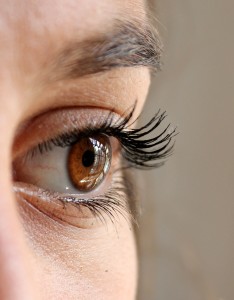 Astigmatism is an eye condition that is much more common than most people realize. In fact, almost everyone has astigmatism to some degree or another. Even if it does not affect your vision, astigmatism is most likely present in your life. And if it does alter the way you view the world (literally), we’re here to help provide you with some solutions.
Astigmatism is an eye condition that is much more common than most people realize. In fact, almost everyone has astigmatism to some degree or another. Even if it does not affect your vision, astigmatism is most likely present in your life. And if it does alter the way you view the world (literally), we’re here to help provide you with some solutions.
What Causes Astigmatism?
Although the exact root cause is unknown, astigmatism occurs when the eye is not perfectly round. Of course, this occurs to essentially everyone, but it is only when the problem is drastic that it begins to affect your vision. This is because of the way an elongated eye refracts light. In a normal, round eye, the light bends evenly as it passes through the eye. If you have a serious astigmatism, however, that light is scattered unevenly, causing the object to be out of focus or blurry.
Although the term “astigmatism” may sound scary, once you know what it is, it is nothing to worry about. Even if you do have astigmatism, it is very easily corrected.
How Can You Treat Astigmatism?
For the most part, astigmatism can be treated with something very simple: glasses or contacts. Under usual conditions, you just need some sort of lens to help alter the way light refracts as it enters the eye. This will help counterbalance the refracting that the astigmatism itself is doing. Just bend the light the opposite way and voila! Problem solved!
If you choose surgery instead, there are many different types of refractive or laser eye surgery that are available. Each one will use a slightly different technique to alter and fix the way the eye intakes and refracts light. This might be cheaper and more convenient in the long run, but is much more of a hassle if you’re playing the short-term game. You will need to do a lot of research to decide which surgery is right, and then you have the recovery time. However, if you hate glasses and contacts, you might decide it’s worth it.
Come in and see us today, and we’ll answer any questions you might have about astigmatism.


